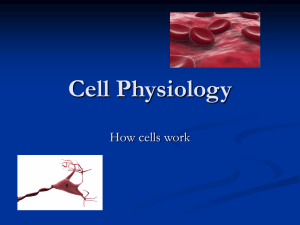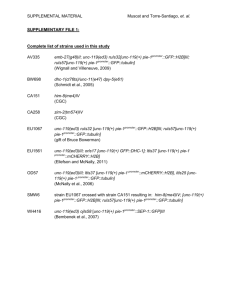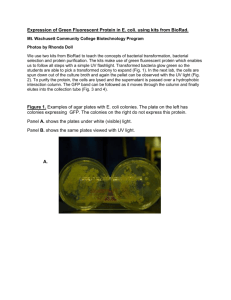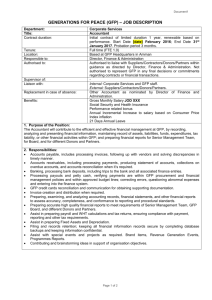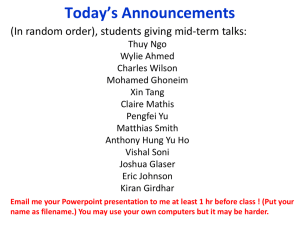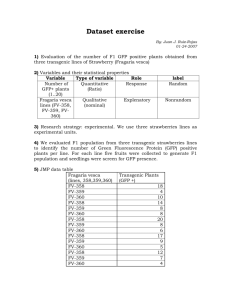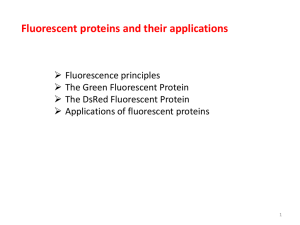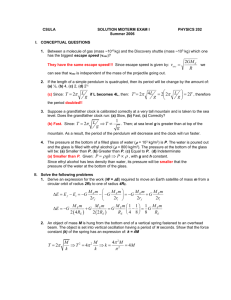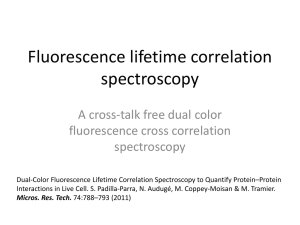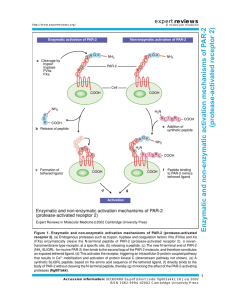Table S2. Strains used for this study. N2 wild type AZ235 unc
advertisement
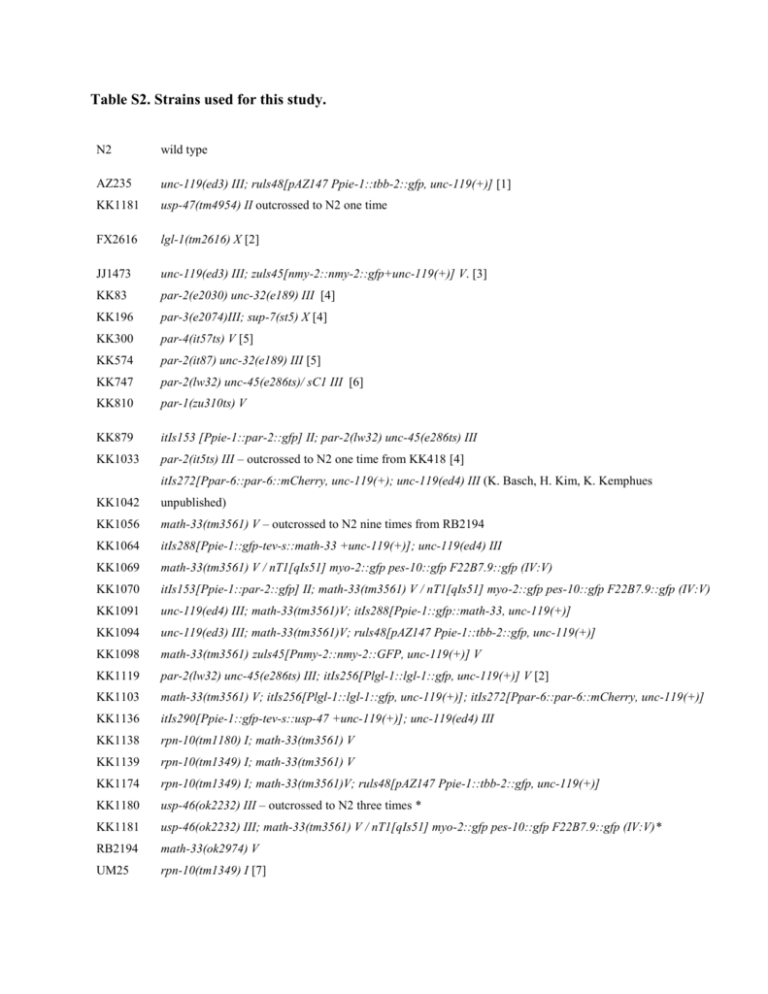
Table S2. Strains used for this study. N2 wild type AZ235 unc-119(ed3) III; ruls48[pAZ147 Ppie-1::tbb-2::gfp, unc-119(+)] [1] KK1181 usp-47(tm4954) II outcrossed to N2 one time FX2616 lgl-1(tm2616) X [2] JJ1473 unc-119(ed3) III; zuls45[nmy-2::nmy-2::gfp+unc-119(+)] V. [3] KK83 par-2(e2030) unc-32(e189) III [4] KK196 par-3(e2074)III; sup-7(st5) X [4] KK300 par-4(it57ts) V [5] KK574 par-2(it87) unc-32(e189) III [5] KK747 par-2(lw32) unc-45(e286ts)/ sC1 III [6] KK810 par-1(zu310ts) V KK879 itIs153 [Ppie-1::par-2::gfp] II; par-2(lw32) unc-45(e286ts) III KK1033 par-2(it5ts) III – outcrossed to N2 one time from KK418 [4] itIs272[Ppar-6::par-6::mCherry, unc-119(+); unc-119(ed4) III (K. Basch, H. Kim, K. Kemphues KK1042 unpublished) KK1056 math-33(tm3561) V – outcrossed to N2 nine times from RB2194 KK1064 itIs288[Ppie-1::gfp-tev-s::math-33 +unc-119(+)]; unc-119(ed4) III KK1069 math-33(tm3561) V / nT1[qIs51] myo-2::gfp pes-10::gfp F22B7.9::gfp (IV:V) KK1070 itIs153[Ppie-1::par-2::gfp] II; math-33(tm3561) V / nT1[qIs51] myo-2::gfp pes-10::gfp F22B7.9::gfp (IV:V) KK1091 unc-119(ed4) III; math-33(tm3561)V; itIs288[Ppie-1::gfp::math-33, unc-119(+)] KK1094 unc-119(ed3) III; math-33(tm3561)V; ruls48[pAZ147 Ppie-1::tbb-2::gfp, unc-119(+)] KK1098 math-33(tm3561) zuls45[Pnmy-2::nmy-2::GFP, unc-119(+)] V KK1119 par-2(lw32) unc-45(e286ts) III; itIs256[Plgl-1::lgl-1::gfp, unc-119(+)] V [2] KK1103 math-33(tm3561) V; itIs256[Plgl-1::lgl-1::gfp, unc-119(+)]; itIs272[Ppar-6::par-6::mCherry, unc-119(+)] KK1136 itIs290[Ppie-1::gfp-tev-s::usp-47 +unc-119(+)]; unc-119(ed4) III KK1138 rpn-10(tm1180) I; math-33(tm3561) V KK1139 rpn-10(tm1349) I; math-33(tm3561) V KK1174 rpn-10(tm1349) I; math-33(tm3561)V; ruls48[pAZ147 Ppie-1::tbb-2::gfp, unc-119(+)] KK1180 usp-46(ok2232) III – outcrossed to N2 three times * KK1181 usp-46(ok2232) III; math-33(tm3561) V / nT1[qIs51] myo-2::gfp pes-10::gfp F22B7.9::gfp (IV:V)* RB2194 math-33(ok2974) V UM25 rpn-10(tm1349) I [7] UM26 rpn-10(tm1180) I [7] * These two strains were lost due to incubator malfunction. References: 1. 2. 3. 4. 5. 6. 7. Praitis V, Casey E, Collar D, Austin J (2001) Creation of low-copy integrated transgenic lines in Caenorhabditis elegans. Genetics 157: 1217–1226. Available:http://www.pubmedcentral.nih.gov/articlerender.fcgi?artid=1461581&tool=pmc entrez&rendertype=abstract. Beatty A, Morton D, Kemphues K (2010) The C. elegans homolog of Drosophila Lethal giant larvae functions redundantly with PAR-2 to maintain polarity in the early embryo. Development 137: 3995–4004. Available:http://www.pubmedcentral.nih.gov/articlerender.fcgi?artid=2976283&tool=pmc entrez&rendertype=abstract. Accessed 29 March 2012. Nance J, Munro EM, Priess JR (2003) C. elegans PAR-3 and PAR-6 are required for apicobasal asymmetries associated with cell adhesion and gastrulation. Development 130: 5339–5350. Available:http://www.ncbi.nlm.nih.gov/pubmed/13129846. Accessed 2 March 2012. Kemphues KJ, Priess JR, Morton DG, Cheng NS (1988) Identification of genes required for cytoplasmic localization in early C. elegans embryos. Cell 52: 311–320. Available:http://www.ncbi.nlm.nih.gov/pubmed/3345562. Morton DG, Roos JM, Kemphues KJ (1992) par-4, a Gene Required for Cytoplasmic Localization and Determination of Specific Cell Types in Caenorhabditis elegans Embryogenesis. Genetics 130: 771–790. Levitan DJ, Boyd L, Mello CC, Kemphues KJ, Stinchcomb DT (1994) par-2, a gene required for blastomere asymmetry in Caenorhabditis elegans, encodes zinc-finger and ATP-binding motifs. Proceedings of the National Academy of Sciences of the United States of America 91: 6108–6112. Available:http://www.pubmedcentral.nih.gov/articlerender.fcgi?artid=44147&tool=pmcen trez&rendertype=abstract. Labbé J-C, Pacquelet A, Marty T, Gotta M (2006) A genomewide screen for suppressors of par-2 uncovers potential regulators of PAR protein-dependent cell polarity in Caenorhabditis elegans. Genetics 174: 285–295. Available:http://www.pubmedcentral.nih.gov/articlerender.fcgi?artid=1569778&tool=pmc entrez&rendertype=abstract. Accessed 23 April 2012.
